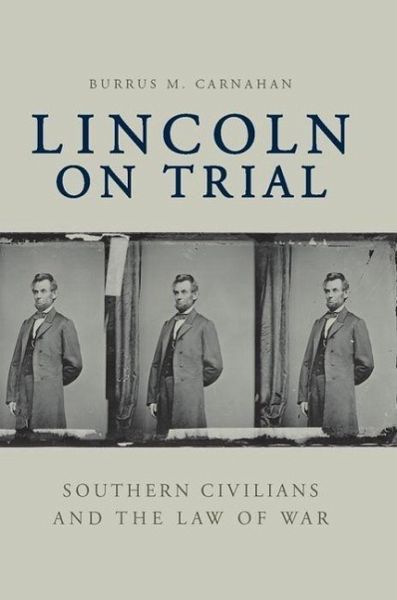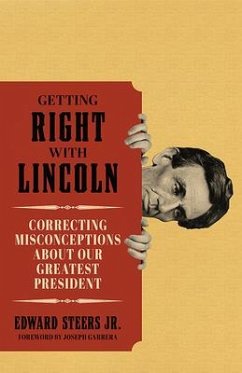
Lincoln on Trial
Southern Civilians and the Law of War

PAYBACK Punkte
11 °P sammeln!
In light of recent controversies and legal actions related to America's treatment of enemy prisoners in the Middle East and Guantanamo Bay, the regulation of government during wartime has become a volatile issue on the global scene. By today's standards, Lincoln's adherence to the laws of war could be considered questionable, and his critics, past and present, have not hesitated to charge that he was a war criminal. In Lincoln on Trial: Southern Civilians and the Law of War, Burrus M. Carnahan conducts an extensive analysis of Lincoln's leadership throughout the Civil War as he struggled to ba...
In light of recent controversies and legal actions related to America's treatment of enemy prisoners in the Middle East and Guantanamo Bay, the regulation of government during wartime has become a volatile issue on the global scene. By today's standards, Lincoln's adherence to the laws of war could be considered questionable, and his critics, past and present, have not hesitated to charge that he was a war criminal. In Lincoln on Trial: Southern Civilians and the Law of War, Burrus M. Carnahan conducts an extensive analysis of Lincoln's leadership throughout the Civil War as he struggled to balance his own humanity against the demands of his generals.













